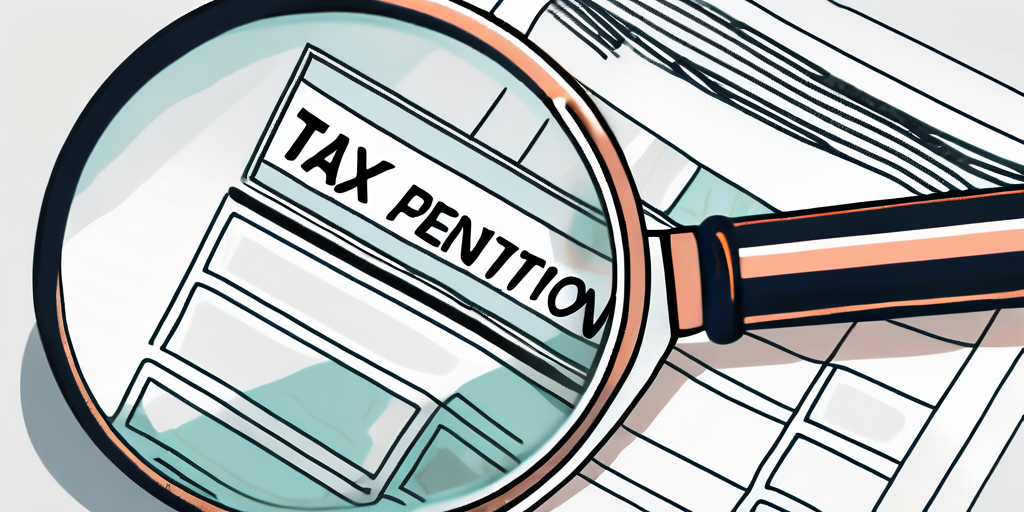Ever wondered why your accountant has that maniacal laugh every tax season? It’s not because they’ve finally cracked under the pressure of endless spreadsheets. No, it’s because they’re about to dive into the thrilling world of tax liability! Buckle up, folks, because we’re about to embark on a rollercoaster ride of tax codes, deductions, and yes, even the dreaded audit.
Now, before you start hyperventilating into a paper bag, let’s get one thing straight: tax liability isn’t as scary as it sounds. In fact, it’s just a fancy way of saying “how much you owe the taxman”. And with the right preparation, you can even turn tax season into a fun game of “how much can I legally deduct?” So, grab your calculator and your sense of humor, because we’re about to dive deep into the world of tax liability.
Understanding Tax Liability
Imagine you’re at a fancy restaurant and you’ve just enjoyed a sumptuous five-course meal. The waiter brings the bill and your heart skips a beat. That’s tax liability, folks! It’s the bill you get from the government after you’ve enjoyed all the services it provides – like roads, schools, and that sweet, sweet national defense.
But unlike that restaurant bill, your tax liability isn’t a fixed amount. It’s calculated based on a whole bunch of factors, like your income, your marital status, and whether or not you’ve decided to foster a dozen cats. (Spoiler alert: the cats don’t count as dependents. We checked.)
How is Tax Liability Calculated?
Calculating your tax liability is a bit like baking a cake. You need to gather all the ingredients (your income sources), measure them accurately (calculate your gross income), and then follow the recipe (the tax code) to the letter. And just like baking, it’s a lot easier if you’ve got a good mixer (a tax professional).
But if you’re a DIY kind of person, here’s the basic recipe: First, you’ll need to calculate your gross income. This includes everything from your salary to your investment income. Next, you’ll subtract any adjustments to income, like student loan interest or contributions to a retirement account. This gives you your adjusted gross income (AGI).
Adjustments, Deductions, and Credits, Oh My!
Now, this is where things get interesting. You see, the government doesn’t just want to know how much you’re making. They also want to know how much you’re spending. And if you’re spending money on certain things – like education, healthcare, or a home – you might be eligible for deductions or credits that can reduce your tax liability.
Think of deductions and credits like coupons. They can’t make your meal free, but they can certainly make it cheaper! Deductions reduce the amount of income that’s subject to tax, while credits reduce your tax bill dollar for dollar. So, if you’re eligible for any deductions or credits, make sure to claim them on your tax return.
Preparing for Tax Season
Now that you’ve got a basic understanding of tax liability, it’s time to start preparing for tax season. And no, that doesn’t mean stocking up on coffee and tissues. It means getting organized, understanding your tax obligations, and making smart financial decisions throughout the year.
Remember, tax preparation isn’t a one-time event. It’s a year-round process. So, whether it’s January or July, it’s always a good time to think about your taxes.
Getting Organized
The first step in tax preparation is getting organized. And no, that doesn’t just mean buying a fancy calculator and a new set of highlighters. It means gathering all your tax-related documents, like W-2s, 1099s, and receipts for deductible expenses.
It also means keeping track of any changes in your life that could affect your taxes. Did you get married? Have a baby? Start a new job? All these events could have an impact on your tax liability, so make sure to keep a record of them.
Understanding Your Tax Obligations
The next step in tax preparation is understanding your tax obligations. This means knowing how much you’re likely to owe in taxes, when those taxes are due, and what you can do to reduce your tax liability.
Remember, the goal isn’t to avoid paying taxes. It’s to pay your fair share – no more, no less. So, make sure to understand your tax obligations and plan accordingly.
Working with a Tax Professional
Now, if all this talk of deductions, credits, and AGI has you feeling a bit overwhelmed, don’t panic. There’s a whole profession dedicated to helping people navigate the labyrinth of tax codes. They’re called tax professionals, and they’re here to help.
Working with a tax professional can make tax preparation a lot easier. They can help you understand your tax obligations, identify potential deductions and credits, and even represent you in case of an audit. So, if you’re feeling lost in the world of tax liability, consider seeking professional help.
Choosing a Tax Professional
Choosing a tax professional is a bit like choosing a life partner. You want someone who’s knowledgeable, trustworthy, and willing to stick with you through thick and thin (or in this case, through audits and amendments).
When choosing a tax professional, make sure to check their qualifications, experience, and reputation. Ask for references, check online reviews, and make sure they’re up-to-date with the latest tax laws. After all, you wouldn’t want your tax return to be their learning curve!
Working with a Tax Professional
Once you’ve chosen a tax professional, it’s time to start working with them. This means sharing all your financial information, asking questions, and following their advice. Remember, they’re there to help you, not to judge you. So, don’t be shy about sharing your financial secrets.
Working with a tax professional can make tax preparation a lot less stressful. So, if you’re feeling overwhelmed by tax liability, don’t hesitate to seek professional help. After all, even the best bakers sometimes need a helping hand!
Conclusion
And there you have it, folks! A comprehensive, hilarious, and hopefully not too terrifying guide to tax liability and tax preparation. Remember, tax season doesn’t have to be scary. With the right preparation and a good sense of humor, it can be a breeze!

So, the next time you’re feeling overwhelmed by tax forms and codes, just remember: you’re not alone. There’s a whole world of tax professionals, hilarious guides, and yes, even accountants with maniacal laughs, ready to help you navigate the thrilling world of tax liability. Happy tax season!


